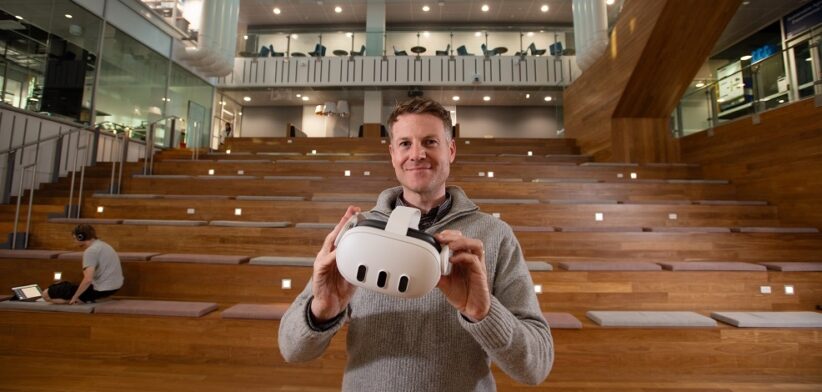QUT is using virtual reality to add another dimension to its mental health services for students.
A counselling pilot program is integrating virtual reality (VR) into services, offering students new ways to address a range of mental health issues such as managing public speaking anxiety and enhancing mindfulness practices.
QUT Manager of Counselling and Psychological Wellbeing Donald Crowley said the immersive nature of VR allowed for the creation of controlled environments that were incredibly realistic.
Mr Crowley said using VR, therapists could create tailored environments that simulated real-world scenarios from the safety of the counselling room, improving accessibility while allowing a greater degree of control and customization.
He said the VR program would play a part in the comprehensive mental health services, that already included counselling, mental health nurses, psychologists and a range of other initiatives that focused on student wellbeing.
“It is expected to be particularly beneficial in the management of stress and anxiety around public speaking, especially in academic environments where presentations and group discussions are frequent,” Mr Crowley said.
He said the VR program allowed students to practice their speeches in front of a simulated audience, which could be programmed to ask questions about the content – allowing students to develop their presentation skills and address any fears they had in a safe and controlled environment.
“As a university, we are able to focus on the needs of students and offer early intervention support which can help students stay on track during difficult times, as well as increase and rebuild resilience,” Mr Crowley said.
Mindfulness and relaxation techniques will also be targeted through the pilot program.
“By transporting students to tranquil environments VR may help students achieve a state of calm more effectively than traditional mindfulness practices,” he said.
“These immersive experiences can be particularly beneficial for students who struggle with traditional meditation techniques or have difficulty finding a peaceful environment for relaxation. Mindfulness is a critical component of mental wellbeing.
“The VR environments we’ve developed provide a perfect setting for students to practice mindfulness and stress reduction, while the sensory immersion helps them stay present and fully engaged in the moment, which is often a challenge in our busy lives.”
The program will be open to QUT students with a referral in October.








